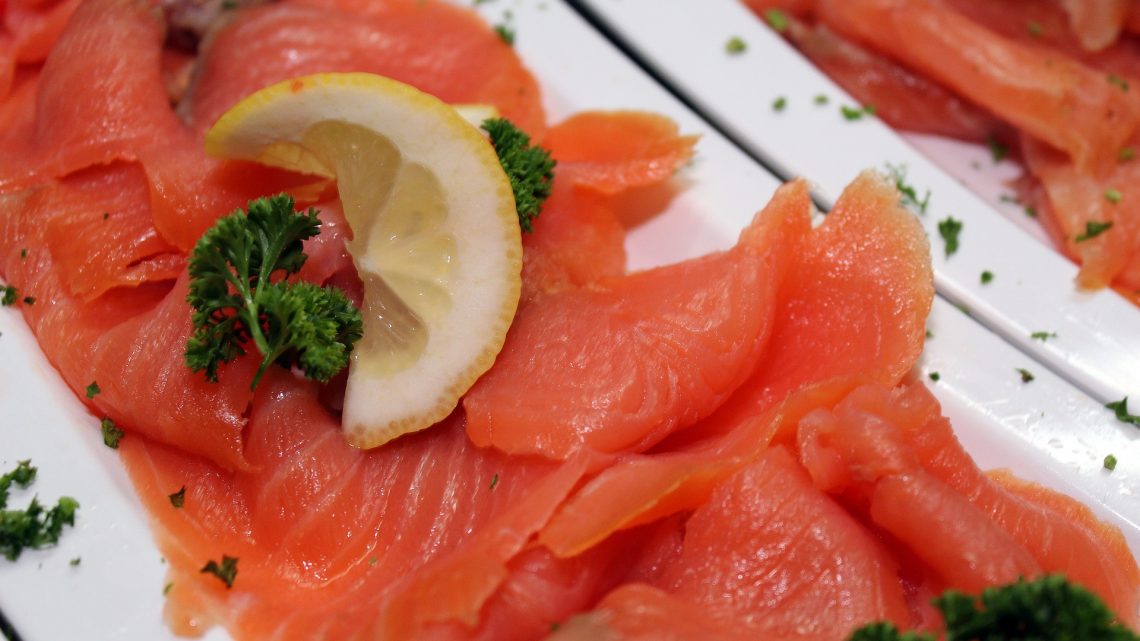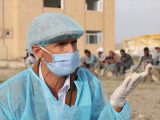
After Panic in Beijing, FDA Reiterates That COVID-19 Doesn’t Spread Through Food
June 19, 2020In the past week, more than 100 cases of coronavirus have been reported in Beijing, after the Chinese capital went almost two months without a single positive test. The majority of the just-confirmed cases have been connected to Xinfadi, the massive wholesale agricultural market in the southern part of the city.
Xinfadi—which trades an estimated 18,000 tons of vegetables and 20,000 tons of fruit every day—was promptly closed, while some residential compounds in that district have reportedly been locked down. According to the BBC, a spokesperson for Beijing's Municipal Health Commission said that 40 samples taken from the market had tested positive for coronavirus, and at least one of the positive tests was originally connected to a chopping board that was used to cut imported salmon.
As a result, salmon has been pulled from supermarket shelves and from grocery apps, and China temporarily stopped importing salmon from Europe, much to the frustration of Norwegian salmon suppliers. (According to Food Navigator, Norway exported 23,500 tons of salmon to China in 2019, a haul worth $1.6 billion NOK.)
On Tuesday, Chinese authorities walked back their statements about the salmon, after agreeing that the salmon had not been contaminated with coronavirus before its arrival at the market. "At present, all the evidence points to Xinfadi, rather than to salmon,” Zhong Kai, director of the China Food Information Center, said.
Odd Emil Ingebrigtsen, Norway's Minister of Fisheries and Seafood, immediately released a statement that reads like a long sigh of relief. "The statement from Chinese experts on disease control is in line with the conclusions reached by the Norwegian Food Safety Authority, who have stated that infection via food and water is considered unlikely," he said. "[W]e are working at full speed to ensure that Norwegian salmon export to China soon can resume." (He did admit that it could "take some time" before the salmon situation returns to normal.)
The Norwegian Food Safety Authority echoed Ingebritson's remarks, while noting that most of Norway's "salmon slaughterhouses" are in rural parts of the country with few residents and even fewer cases of coronavirus. "It is a basic requirement in the Norwegian regulation that people handling food including seafood, must be healthy," the agency wrote. "During the Covid-19 outbreak, Norway has implemented strict hygiene regulations regarding social distance, quarantine, and isolation. The producers in Norway have followed all these requirements and recommendations in their facilities."
The World Health Organization has said that "food has not been implicated in the transmission of COVID-19," and the Food and Agriculture Organization (FAO) of the United Nations has also written that "coronavirus cannot infect aquatic animals." (The FAO and the Asian Fisheries Society collaborated on a study published in April that determined that the cause of COVID-19 "was not known to infect aquatic food animals nor contaminate their products.")
"A virus must rely on the viral receptor on the host cell surfaces to infect cells. Without the certain receptor they cannot enter into cells successfully," Cheng Gong, a virologist at Tsinghua University, told the Global Times. "All known evidence so far suggests this kind of receptors exist only in mammals, not fish."
Regardless, the FDA has responded this week, by also saying that there was no evidence that coronavirus has been—or even could be—transmitted through food. "The FDA is aware of reports that China will begin testing foods (particular produce, seafood and meat) for COVID-19. There is currently NO evidence of the transmission of COVID-19 through food and there are no known or suspected cases linked to food," Frank Yiannas, the FDA's deputy Commissioner of Food Policy and Response, wrote on Twitter.
"We continue to review all available science as we assess the virus that causes COVID-19. Following standard hygiene practices, safe food handling, and using cooking practices that protect us from foodborne illness remain important."


